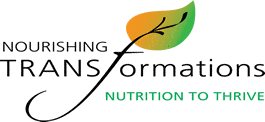From aiding enzyme functions to bolstering gut health, specific vitamins are key. They enhance digestion, allowing your body to absorb and utilize the goodness from your food. Stay tuned to uncover which vitamins are your digestive tract’s best friends and how you can incorporate them into your diet for optimal health. Here are the vitamins that help with digestion:
Vitamins and Digestion
You’ve already learned about the importance of probiotics and fiber in your digestion, but now it’s time to focus on the role of vitamins. These essential nutrients are crucial for supporting the digestive enzymes that your body needs to break down food and absorb nutrients effectively.
Vitamin A
Vitamin A is well-known for its role in maintaining good vision, but it’s also good for a healthy digestive tract. It helps repair gut lining and ensures the proper functioning of the mucous membranes in the area. Good sources of Vitamin A include:
- Carrots
- Sweet potatoes
- Kale
To boost your digestion, incorporating these foods into your diet can be beneficial. But remember, balance is key, as too much Vitamin A can lead to toxicity.
Vitamin B
The Vitamin B complex, particularly B3, B6, and B12 vitamins that help with digestion. They help enzymes break down food, transform nutrients into energy and maintain a healthy lining of the digestive tract. Here are some foods that are rich in B vitamins:
- Whole grains
- Legumes
- Lean meats
Keeping a varied diet with these ingredients supports not just digestion but also overall wellness.
Vitamin C
This popular antioxidant doesn’t just bolster your immune system; it also helps in the absorption of iron from plant-based foods. Additionally, Vitamin C is crucial for the production of collagen, which helps maintain the integrity of your gut lining. Citrus fruits, strawberries, and bell peppers are excellent sources of Vitamin C. To optimize nutrient absorption, pair them with iron-rich plant foods like spinach and quinoa.
Vitamin D
 Often recognized for its importance in bone health, Vitamin D is similarly vital for the digestive process. It aids in the absorption of calcium and supports the immune system within the gut. You can find Vitamin D in:
Often recognized for its importance in bone health, Vitamin D is similarly vital for the digestive process. It aids in the absorption of calcium and supports the immune system within the gut. You can find Vitamin D in:
- Fatty fish
- Eggs
- Fortified foods
However, the best source of Vitamin D is sunlight, so make sure to get sufficient sun exposure when feasible.
Vitamin E
Vitamin E is an antioxidant that helps protect the cells in your digestive tract from oxidative stress. This is essential for maintaining gastrointestinal health. Foods packed with Vitamin E include nuts, seeds, and green leafy vegetables which are all easy to incorporate into different meals for a digestive health boost.
Incorporating these vitamins into your diet will not only improve your digestive health but can also lead to improved overall well-being. Remember to strive for a balanced diet to ensure you’re getting the full spectrum of nutrients your body needs.
Best Food Sources for Vitamins that Help With Digestion
Ensuring you get the right vitamins for digestion involves incorporating a variety of foods into your diet. Below, discover the best food sources that are rich in the essential vitamins that support your digestive health.
Leafy Greens
Leafy greens are not only packed with fiber but also an excellent source of Vitamin A and Vitamin K, crucial for maintaining digestive health. These greens include:
- Spinach
- Kale
- Swiss chard
Spinach is particularly rich in Vitamin A, vital for the mucous lining in your digestive tract which helps with the absorption of nutrients. Kale offers an abundance of Vitamin K, playing a key role in gut flora balance.
Citrus Fruits
Rich in Vitamin C, citrus fruits are vital for collagen production, which strengthens the lining of your gut, reducing the potential for ulcers. Some powerhouse citrus fruits include:
- Oranges
- Grapefruits
- Lemons
Squeeze lemon into your water or tea to boost digestive health with a refreshing twist.
Whole Grains
Whole grains are a great source of B vitamins, particularly thiamine, riboflavin, niacin, and folate, which are essential for converting food into energy. Adding whole grains to your diet can improve digestion by:
- Regulating bowel movements
- Providing prebiotic benefits
Incorporate whole grains such as brown rice, barley, and quinoa to enrich your vitamin B intake.
Nuts and Seeds
Nuts and seeds are densely packed with both Vitamin E and fiber. Consuming a variety of these can lead to:
- Reduced inflammation in the digestive tract
- Enhanced nutrient absorption
Options like almonds, flaxseeds, and sunflower seeds can serve as a nutritious snack while contributing to digestive wellness.
Fermented Foods
Fermented foods are unique as they not only supply a range of B vitamins but also contain probiotics that promote a healthy gut microbiome. These foods include:
- Yogurt
- Kefir
- Sauerkraut
Regularly consuming yogurt or kefir provides live cultures beneficial for gut health and aids in maintaining a balanced digestive system.
Conclusion
Embracing a diet rich in leafy greens, citrus fruits, whole grains, nuts, seeds, and fermented foods is your ticket to better digestion. By ensuring you’re getting your daily dose of vitamins A, K, C, B, and E, you’ll be doing wonders for your digestive health. You’ll not only improve your gut’s ability to absorb nutrients but also support regular bowel movements and a thriving gut microbiome. Remember, a happy gut is the foundation of overall well-being, so make sure you include these vitamins that help with digestion in your meals.
References:
Carr, A., & Maggini, S. (2017). Vitamin C and Immune Function. Nutrients, 9. https://doi.org/10.3390/nu9111211.
Cantorna, M., Snyder, L., & Arora, J. (2019). Vitamin A and vitamin D regulate the microbial complexity, barrier function, and the mucosal immune responses to ensure intestinal homeostasis. Critical Reviews in Biochemistry and Molecular Biology, 54, 184 – 192. https://doi.org/10.1080/10409238.2019.1611734.


